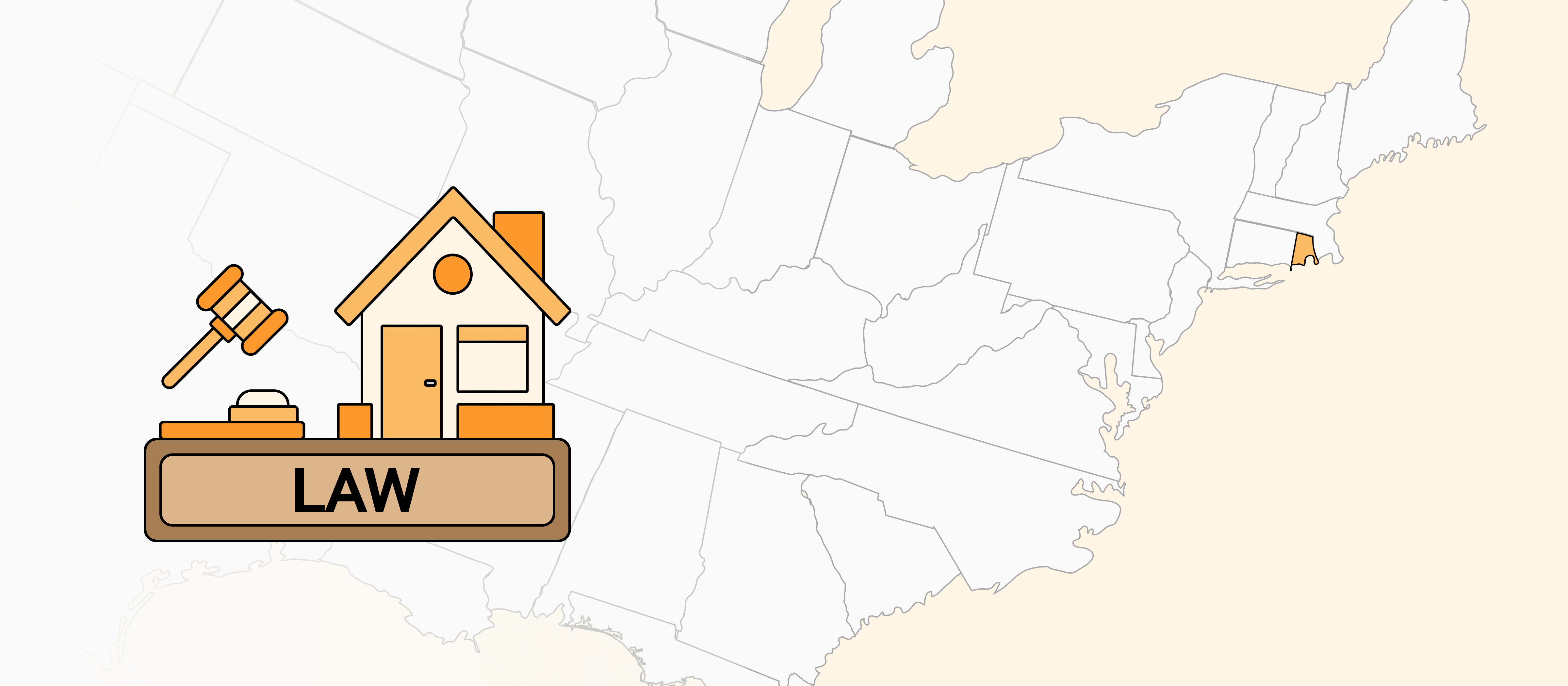What Landlords Need to Know About the Law in Rhode Island

As a landlord in Rhode Island, it’s essential to grasp the specific laws that govern your responsibilities and rights. From understanding application fees to managing security deposits and eviction procedures, each aspect plays a crucial role in your rental business. Adhering to these regulations not only protects you legally but also enhances tenant relationships. What happens if you overlook a critical detail? Let’s explore the key points you need to stay compliant and successful.
Contents
- 1 Application Fees and Regulations
- 2 Understanding Rent Control in Rhode Island
- 3 Late Fees: What You Need to Know
- 4 Security Deposit Guidelines
- 5 Required Disclosures for Landlords
- 6 Handling Rent and Payment Issues
- 7 Tenant Screening Process and Fair Housing Protections
- 8 Eviction Procedures and Notice Requirements
- 9 Best Practices for Landlord-Tenant Relationships
- 10 Conclusion
Application Fees and Regulations
When you’re applying for a rental in Rhode Island, it’s important to know that application fees are permitted but not regulated. This means landlords can charge whatever they choose for processing your application, so be prepared for varying amounts.
Understanding Rhode Island landlord tenant law helps you navigate these fees and other rental aspects. Keep in mind that security deposit guarantees are limited to one month’s rent, and landlords must return them within 20 days after you move out, minus any justified deductions.
Additionally, familiarize yourself with eviction laws in Rhode Island, as these can impact your rental experience if disputes arise. Always read the lease carefully and ask questions if something’s unclear to protect your rights as a tenant.
Understanding Rent Control in Rhode Island
Understanding the rental process in Rhode Island includes knowing the details about rent control, which isn’t applied in the state. This means you can set rent prices as you see fit, without worrying about statutory limits.
However, it’s essential to keep other regulations in mind, like security deposit guarantees, which are capped at one month’s rent along with any applicable furniture deposit. When screening tenants, you can conduct a Rhode Island criminal background check, but remember to evaluate each applicant individually to avoid discrimination.
Being aware of these guidelines helps you manage your properties effectively while ensuring compliance with state laws.
Late Fees: What You Need to Know
Late fees can significantly impact both landlords and tenants, so it’s crucial to know the rules governing them in Rhode Island.
Unlike many states, Rhode Island doesn’t impose a statutory limit on late fees, meaning you can set your own. However, it’s essential to communicate this policy clearly in your lease agreement. You must also provide a minimum grace period of 15 days before charging any late fees. Additionally, if a tenant’s check bounces, you can charge a maximum fee of $25.
Keep in mind that transparency is key; inform tenants about these charges upfront to avoid confusion and disputes. Understanding these regulations helps you maintain a positive landlord-tenant relationship while ensuring compliance with state law.
Security Deposit Guidelines
While navigating the complexities of renting in Rhode Island, it’s vital to grasp the guidelines surrounding security deposits. You can only ask for a maximum of one month’s rent, plus an additional furniture deposit if necessary.
Remember, you’re not required to pay interest on these deposits. When tenants move out, you must return their security deposit within 20 days. If you need to withhold any funds for unpaid rent, damages, or cleaning, you must provide a written itemization of these deductions. This documentation is crucial to avoid disputes and maintain transparency.
Familiarizing yourself with these guidelines will help ensure a smoother landlord-tenant relationship and protect your rights as a landlord.
Required Disclosures for Landlords
Transparency is key for landlords in Rhode Island, especially when it comes to required disclosures.
You must inform tenants about lead-based paint hazards if your property was built before 1978. Additionally, you need to provide a written disclosure of your identity or that of your management agent. It’s crucial to inform tenants of any outstanding housing code violations before signing a rental agreement. Be aware that specific notice periods apply for eviction notices based on the type of violation. Lastly, you must comply with fair housing laws, ensuring you don’t discriminate against tenants based on protected characteristics.
Staying informed about these requirements helps you maintain a transparent and legally compliant rental process.
Handling Rent and Payment Issues
Understanding how to manage rent and payment issues is essential for both landlords and tenants in Rhode Island.
To ensure smooth transactions, set a clear rent due date, typically on the first of the month, unless you specify otherwise. Keep in mind that while there’s no limit on late fees, it’s wise to communicate these charges upfront. If a tenant pays with a check that bounces, you can charge a maximum fee of $25. Remember, tenants have the right to repair and deduct costs under certain conditions. When it comes to rent increases, you can adjust rents as desired since there’s no statewide rent control.
Always document all transactions to keep records clear and transparent.
Tenant Screening Process and Fair Housing Protections
When you’re screening potential tenants, it’s crucial to comply with Fair Housing protections to avoid discrimination claims. Ensure you treat all applicants fairly, regardless of their race, color, religion, gender, or other protected characteristics.
While you can conduct background checks, approach criminal histories carefully. Assess each case individually rather than applying blanket policies that might exclude applicants with past convictions. If you use credit reports in your screening process, remember to comply with the Fair Credit Reporting Act and safeguard tenant information.
Also, if an applicant’s credit history negatively impacts your decision, you must inform them.
Eviction Procedures and Notice Requirements
In the tenant screening process, it’s important to also be aware of eviction procedures and notice requirements. In Rhode Island, you must provide specific notices before initiating eviction.
For non-payment of rent, you need to give a 15-day notice. If the tenant violates lease terms, a 5-day notice is required. Always keep records of these notices, as they serve as proof of compliance with the law.
If a tenant fails to comply, you can file for eviction in the local court. Be prepared to present your case clearly.
Best Practices for Landlord-Tenant Relationships
Establishing a positive landlord-tenant relationship is essential for a smooth rental experience. Open communication is key; listen to your tenants’ concerns and address issues promptly.
Regular maintenance checks show you care about their living conditions. Always provide clear written agreements and disclosures to avoid misunderstandings. Respect your tenants’ privacy by giving proper notice before entering the property. It’s also wise to be familiar with fair housing laws to ensure you treat all tenants equally.
If conflicts arise, approach them professionally and seek to resolve disputes amicably. Lastly, be transparent about any changes, like rent increases, well in advance.
Conclusion
By staying informed about Rhode Island’s rental laws, you can effectively manage your properties and maintain positive relationships with your tenants. Remember to keep track of application fees, security deposit regulations, and required disclosures. Being proactive about late fees and understanding eviction procedures will help you navigate challenges smoothly. Prioritizing fair housing practices and fostering good communication can lead to a successful and harmonious rental experience for both you and your tenants.

